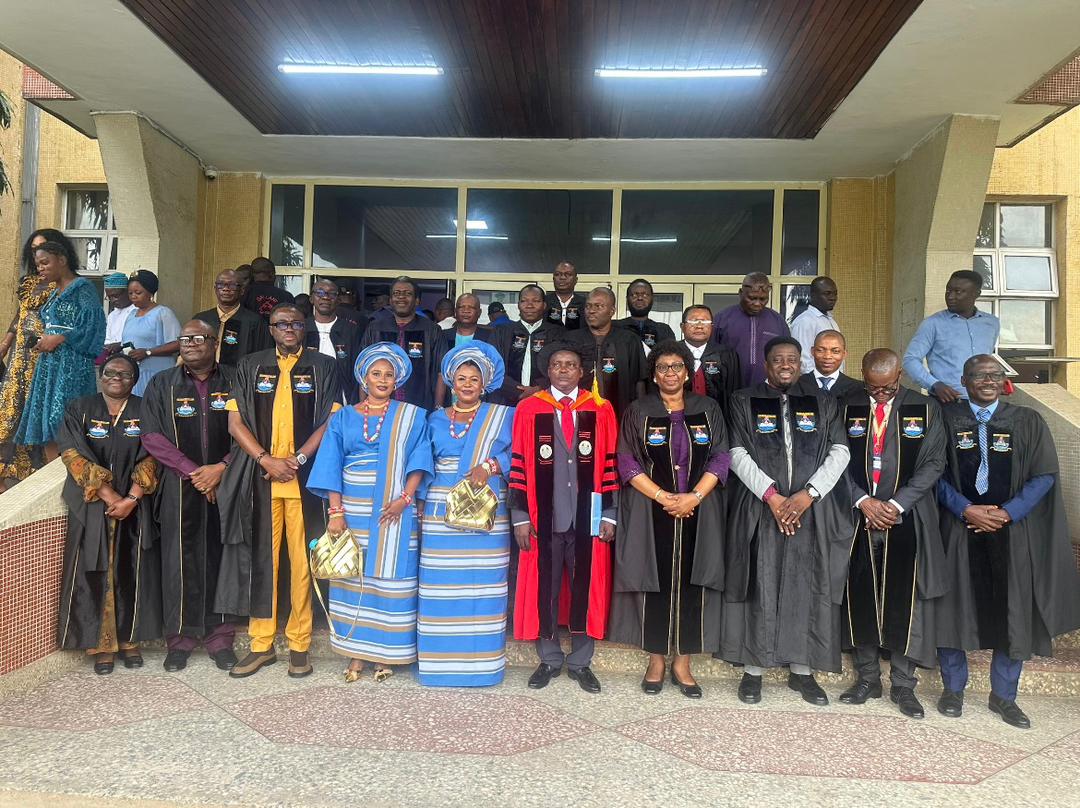By Henry Oladele
A Professor of Microbiology, Kabiru Akinyemi, on Tuesday called on the Federal Government to educate the populace on the dangers of indiscriminate drug use.
Akinyemi made this call at the 112th Lagos State University (LASU) Inaugural Lecture Series, held at the Buba Marwa Auditorium, the university’s main campus.
The News Agency of Nigeria (NAN) reports that Akinyemi is a Professor of Microbiology at the Department of Microbiology, Faculty of Science, LASU.
The lecture had the theme: “Itsy Bitsy Animacules In Our Lives: An Unending War And Survival Strategies”.
Akinyemi recommended that private and public health workers should always base a definite diagnosis of typhoid fever cases on a blood culture test.
He, however, noted that where the use of a single widal test is inevitable, the malaria parasite test should be included alongside it.
“There should be mass education of the entire populace on the danger involved in the indiscriminate use of drugs, which is crucial.
“There should be a periodic review of antimicrobial agents used in hospitals and clinics, given the rapidly spreading plasmid-encoded multidrug resistance in bacteria.
“A mass public campaign on safe methods of sewage and refuse disposal should be encouraged, promoted, enforced and sustained,” he said.
While talking about the theme, Akinyemi said that the war on infectious pathogens was unending, adding that new ones would emerge while the existing ones adapt.
He listed infectious pathogens faced by humans to include black death, smallpox, influenza, Ebola, Zika, and COVID-19.
“Human responses such as hygiene, sanitation, vaccines, and antimicrobials push back these diseases, but pathogens adapt through mutation, zoonotic transmission, antibiotic misuse, urbanisation, climate change, and globalisation.
“We fight on hospital frontlines, in communities, and through global cooperation.
“The war will never end, new pathogens emerge, existing ones adapt, yet advancing scientific insight and technology foster hope in knowing the enemy and ourselves,” he said.
Akinyemi stressed that microbes, including bacteria, viruses, fungi, and protozoa, had developed a variety of survival strategies to thrive within the human host.
“These strategies enable them to evade the immune system, establish infections, and persist in the body despite host defences.
“These strategies include invasion and colonisation which involves the invasion of host tissues by the production of adhesion factors.
“Another strategy is immune evasion which is the host’s immune response through antigenic variation by altering their surface proteins to evade antibody recognition, and antigenic variation,” he said.
He explained that understanding the success and failure of antibiotics in human health required full knowledge of their natural history, origins, evolution, and functions.
“It could also result in new strategies to find novel antibiotics and prevent resistance to existing ones,” he said.
He concluded that the war with microbes was perpetual and the future depended on research and innovation with capacity building for young researchers.
Akinyemi recommended a sustained genomic surveillance, establishment of the Nigerian Culture-Typing Centre, vaccine rollout, and water disinfection, to promote coexistence and resilience between humans and microorganisms. (NAN) (www.nannews.ng)
Edited by Oluwafunke Ishola












